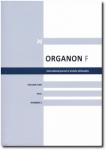Common Source of the Paradoxes of Inference and Analysis
Common Source of the Paradoxes of Inference and Analysis
Author(s): Karel ŠebelaSubject(s): Epistemology, Logic, Ancient Philosphy
Published by: Filozofický ústav SAV
Keywords: Aristotle; pre-knowledge; the paradox of analysis; the paradox of inference;
Summary/Abstract: The paper deals with the paradoxes of inference and analysis. It attempts to show what is specific about these paradoxes. They have got a lot in common. Often, they are not considered paradoxes in the strict sense at all. Moreover, they both raise the same problem: How can the requirements of correctness and informativeness be both met for inference and for conceptual analysis? The strategies developed to address the problem are similar for both cases. In the paper, I claim that the paradoxes have common origins. This claim is supported by comparing different strategies adopted to resolve the problem. Regarding their origins, both paradoxes share the epistemological framework that is grounded in Aristotle’s theory of science. This is related to the problem of implicit knowledge, which is a variation on a dilemma formulated by Plato in his Meno. Aristotle’s solution to the dilemma of Meno is discussed and considered as another plausible strategy for dealing with the paradoxes of inference and analysis.
Journal: Organon F
- Issue Year: 23/2016
- Issue No: 2
- Page Range: 222-242
- Page Count: 21
- Language: English

